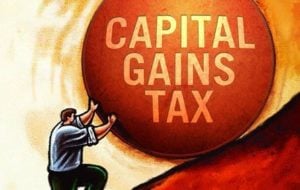Capital Gains Tax is chargeable on all gains, including your Principal Private Residence (“PPR”), but there are some allowances and deductions which can reduce the tax you have to pay.
We were recently asked by a client who had been working abroad about the tax liability on her UK home, which she had now returned to and was considering selling. The property had been let for a number of years whilst she was working abroad and she was considering the tax implications of selling it.
Basic CGT computation
The basic tax computation for this and every other capital gain is that you deduct the purchase price from the selling price (both adjusted for legal and estate agents fees including VAT) to give you the gross gain.
If you buy an asset for £10,000 plus £1,000 legal fees and sell it for £50,000 less £3,500 legal fees, then your gain is:-
Proceeds of £46,500 less cost of £11,000, giving a gain of £35,500.
The gross gain is then reduced by any reliefs that may be available, and added to any other gains.
This overall total is then reduced by the Annual Allowance of £11,300 for 2017/18 [£11,700 for 2018/19] and the Taxable Gain is then liable to tax at 1 of 4 tax rates.
Capital Gains Tax rates
The tax rates which apply to any CGT liability are as shown below.
[table]
,Basic rate taxpayer,Higher rate taxpayer
Gain on residential property,18%,28%
Gain on “carried interest”,18%,28%
Gains eligible for Entrepreneurs Relief,10%,10%
All other gains,10%,20%
[/table]
In relation to the gain on the sale of your house, any gain made by our client will be taxed at either 18% or 28%. In this case it was 28% tax that the client was facing.
CGT Reliefs
Our client was eligible for two main reliefs in this situation: Principal Private Residence relief and Letting Relief.
Principal Private Residence relief (“PPR”)
The computation of PPR is apparently straight forward. You can claim a deduction for the period of time in months in which you lived in the property. This is a simple fraction of the qualifying period compared to the total period.
Added to this, you can include a period of up to 48 months where you didn’t live their due to working abroad; or up to 36 months if you had to work elsewhere in the UK.
The last 18 months of ownership qualify regardless, to allow you time to move and sell.
You bought the property on 1/1/00 and lived in it until 1/1/10 until you went to the USA to work. You returned to the house on 31/12/16 and sold it and moved out on 31/12/20 with a gain of £100,000.
The total period of ownership is 240 months.
You lived in the house for 168 months, and as you met the qualifying conditions, a further 48 months is allowed for having to work abroad.
The tax-free element (PPR) would be (168+48)/240 x £100,000 = £90,000, leaving £10,000 as taxable, but covered by your Annual Exemption.
Letting relief
If the house was let when you were abroad, then letting relief of up to £40,000 is available. In the above example, this would be restricted to £10,000 which could be very helpful if there were other gains.
But if we modify the above example slightly:
You bought the property on 1/1/00 and lived in it until 1/1/10 until you went to the the other end of the UK to work, and bought another house which became your PPR. You sold the second house (PPR at 100%) and returned to the first house on 31/12/16 and then sold the second house and moved out on 31/12/20 with a gain of £100,000.
The total period of ownership is 240 months.
You lived in the house for 168 months, and did not meet the qualifying conditions for any further relief.
The tax-free element (PPR) would be 168/240 x £100,000 = £70,000, leaving £30,000 as taxable, part covered by your Annual Exemption, with the balance taxed at 28%.
In this example, the Letting Relief of £30,000 makes the difference between a tax liability of about £5,000 and no liability.
Further information
As with all tax matters, there is a bit more to it than outlined here, and you think you might be affected by CGT, then speak to either Angus Nicolson or Liam McCreath before the event at our Glasgow office, and we will see how tax planning could benefit you.